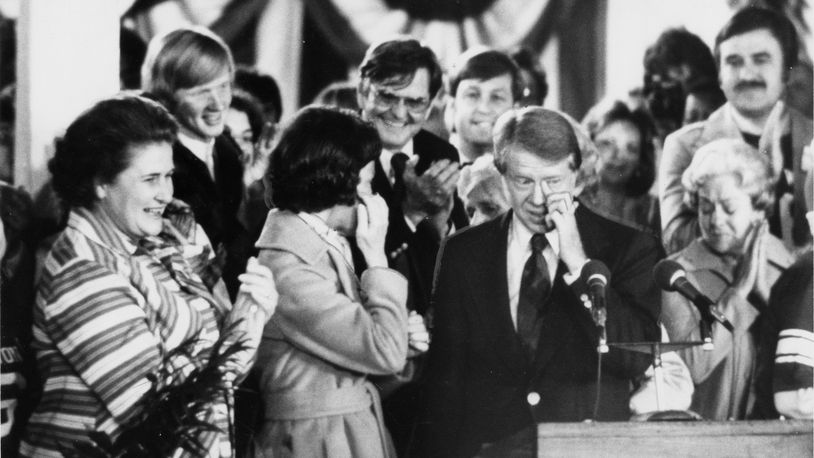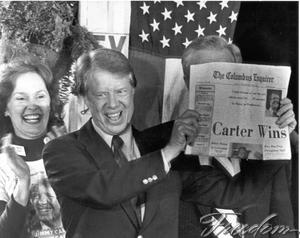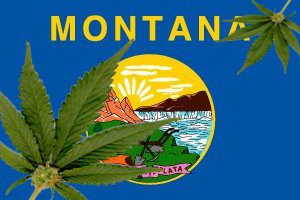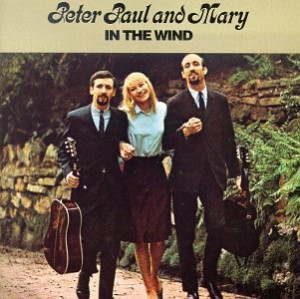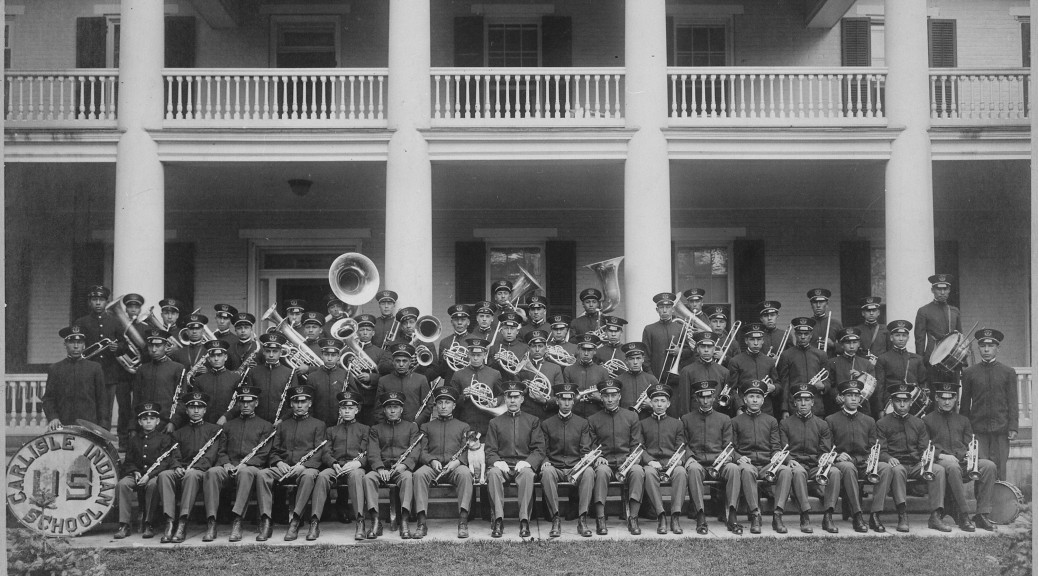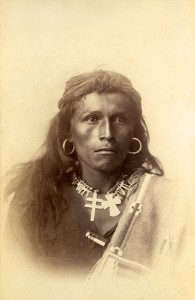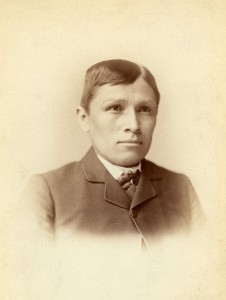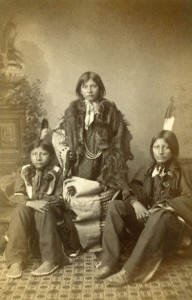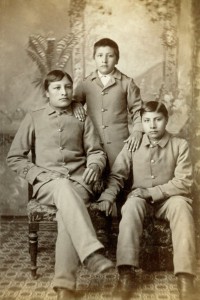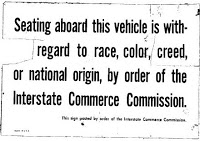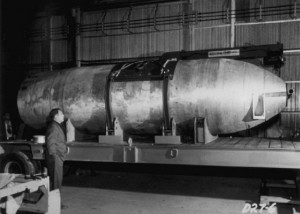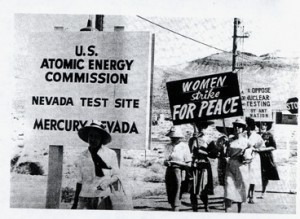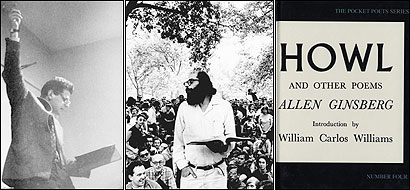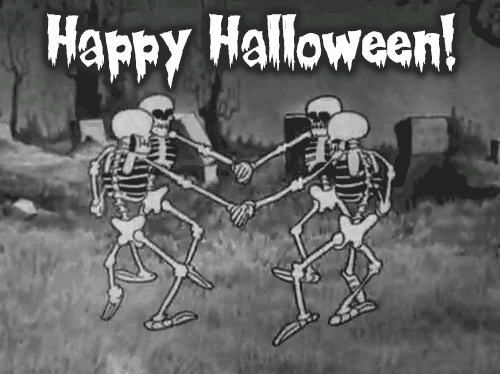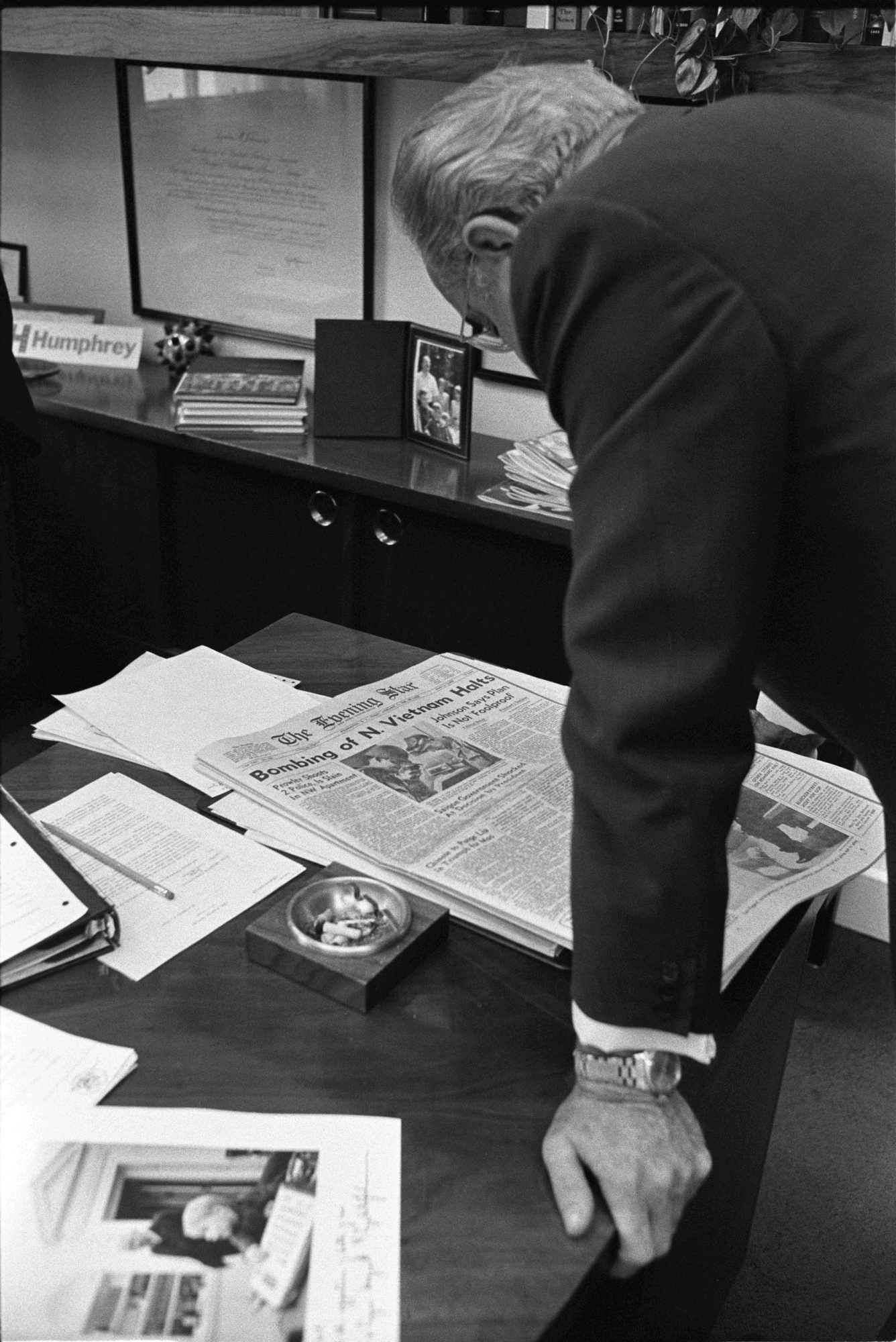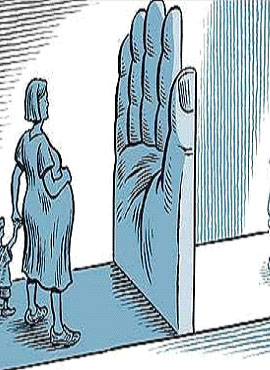November 2 Peace Love Art Activism
Black History
The Mississippi Plan of 1875
November 2, 1875: The Mississippi Plan of 1875, which included violence against African Americans to keep them from voting, resulted in huge victories for white Democrats across the state. John R. Lynch, the last African-American congressman for Mississippi until the 1986 election of Mike Espy, wrote: “It was a well-known fact that in 1875 nearly every Democratic club in the State was converted into an armed military company.” A federal grand jury concluded: “Fraud, intimidation, and violence perpetrated at the last election is without a parallel in the annals of history.” [AAREG article] (see January 4, 1876)
Ocoee Election Day Massacre
November 2, 1920: white mobs in Ocoee, Florida, began a campaign of terror and violence, designed to stop Black citizens in Ocoee from voting, that resulted in the deaths of dozens of Black people and the destruction of the Black community.
Over a two-day span, a mob of white Floridians killed dozens of Black people, burned 25 Black homes, two Black churches, and a masonic lodge in Ocoee. Estimates of the total number of Black Americans killed during the violence range from six to over 30. Because neither the government nor the newspapers at the time thought it was important to establish how many Black people were killed during this attack, we will never have an adequate accounting of this violence. [EJI article] (next BH & Lynching, see Dec 26 or see AL2 for expanded chronology)
Coleman Young/Tom Brady
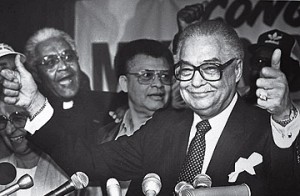
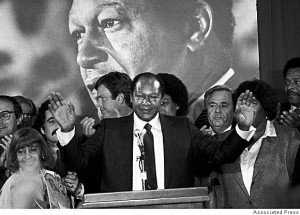
November 2, 1971: Coleman Young elected first African American mayor of Detroit; Tom Bradley elected first Black mayor of Los Angeles. (see February 28, 1972)
Martin Luther King, Jr. Day
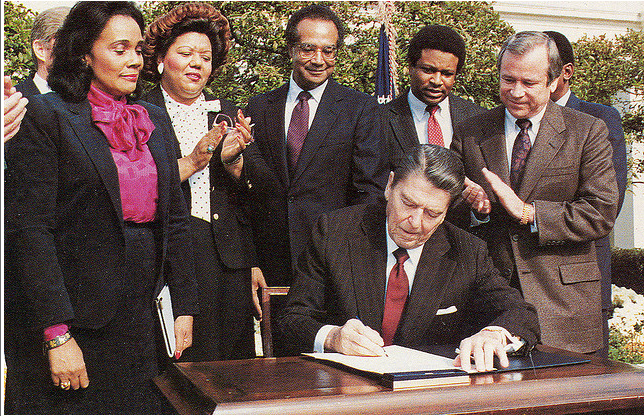
November 2, 1983: President Ronald Reagan signed a bill creating a federal holiday on the third Monday of every January. [King Center article] (see Nov 8)
School Desegregation
November 2, 2004: Alabama voters narrowly voted to retain a state constitutional provision mandating separate schools for black and white children. The amendment would have removed a provision from Article XIV, Section 256, of the Alabama Constitution of 1901, which reads: “Separate schools shall be provided for white and colored children, and no child of either race shall be permitted to attend a school of the other race.”
The amendment also would have removed language added to Section 256 in 1954, which stated that the Alabama Constitution does not create a right to public education. As Alabama resisted school desegregation following the Brown v. Board of Education decision, the 1954 language was enacted to authorize the state to dismantle its public education system if forced to integrate. Proponents of the 2004 amendment argued that removing both the 1901 and 1954 language would purge the constitution’s educational provisions of that pro-segregation legacy.
Shortly before the election, some conservative officials mounted a campaign arguing that removal of the “no right to public education” language would expose the state to potential legal challenges and could allow the state to raise taxes. The proposed amendment failed by 1850 votes (0.13%). In November 2012, Alabama voters again had the opportunity to remove the school segregation provision from the state constitution and again voted to retain it.
Meanwhile, many school systems in Alabama remained segregated. Following the forced implementation of the Brown decision, all-white private schools and academies opened across the state. These academies still exist, especially in the Alabama’s Black Belt region, where white enrollment in public schools is particularly low. In 2008-09, 94% of students enrolled in the Bullock County public school system were African American and less than 1% were white. (BH, see January 6, 2005; SD, see June 28, 2007)
Church Burning
November 2, 2016: someone burned and vandalized Hopewell Missionary Baptist Church in Greenville, Mississippi. The Delta Daily News reported that the majority of the damage was to the main sanctuary and that there were no reported injuries. Someone had spray-painted the words “Vote Drumpf” along the side of the building.
Two months later, police arrested 45-year-old Andrew McClinton, a member of the church (BH, see Dec 16; CB, see March 26, 2019)
Emmett Till
November 2, 2019: a group of people carrying a white nationalist flag were caught on camera attempting to record a video in front of the Emmett Till memorial in Sumner, Mississippi.
Patrick Weems, executive director of the Emmett Till Memorial Commission, told NBC News that the group was captured on camera by a new surveillance system that was updated when the bulletproof memorial was dedicated on Oct. 19.
“This is the first incident we’ve seen of what appears to be white nationalists making a propaganda video,” Weems said.
One man can be heard in the video identifying the sign as a monument representing the “civil rights movement for blacks.”
“What we want to know is, where are all of the white people?” he continued.
In another clip, the group can be seen scrambling for their cars after sirens go off, a newly added security feature. (next BH, see Nov 12; next ET, see December 6, 2021)
Church Burning
November 2, 2020: Louisiana man Holden James Matthews (23) was sentenced to 25 years in prison for setting fire to three predominantly Black churches in what federal prosecutors say was an effort to raise his profile as a “black metal” musician.
Matthews, who burned down the churches over a 10-day period ending on April 4, 2019, was also ordered to pay nearly $2.7 million to the churches. He had pleaded guilty in federal court in February to three counts of violating the Church Arson Prevention Act and to one count of using fire to commit a felony. [NYT article] [ABC News article] (next BH, see Nov 12; next CB, see)
November 2 Peace Love Art Activism
Technological Milestone
Locomobile
November 2, 1902: engineer Andrew Riker delivered the first four-cylinder, gas-powered Locomobile—a $4,000, 12-horsepower Model C—to a buyer in New York City. The Locomobile Company had been known for building heavy, powerful steam cars, but by the turn of the century it was clear that the future of the automobile—and thus of the Locomobile—lay in the internal-combustion engine. (see December 17, 1903)
November 2 Peace Love Art Activism
Presidential elections
Harry Truman
November 2, 1948: Truman’s surprise re-election. President Harry S. Truman elected to a second term as president, defeating Republican Thomas Dewey, Progressive Henry Wallace, and Dixiecrat Strom Thurmond in the election of 1948. (see Dec 3)
Jimmy Carter
November 2, 1976: Jimmy Carter defeated incumbent Gerald Ford, becoming the first candidate from the Deep South to win since the Civil War.
George W Bush
November 2, 2004, Bush re-elected President.
November 2 Peace Love Art Activism
Cold War
November 2, 1949: The Congress of Industrial Organizations (CIO) voted in its national convention to revoke the charter of the United Electrical Workers, the third largest union in the CIO, for failing to purge itself of Communist influence. Ultimately twelve left-leaning unions, and countless individual left-wing organizers, will be booted from the CIO. (see December 10, 1949)
November 2 Peace Love Art Activism
Cannabis
Boggs Act
November 2, 1951: President Harry Truman signed the “Boggs Act” into law, setting minimum federal sentences for drug offenders. A first-offense marijuana possession carried a minimum sentence of 2-10 years with a fine of up to $20,000. [Prohbtd article] (C & P, see May 22, 1964; Marijuana, see March 30, 1961)
Maine
November 2, 1999: Maine became the fifth state to legalize medical marijuana when ballot initiative Question 2 was passed with 61% of the vote. The law “provides a simple defense, which means the burden is on the state to prove that a patient’s medical use or possession was not authorized by statute.” (see June 4, 2000)
Medical marijuana
November 2, 2004: sixty-two percent of voters in Montana approved Initiative 148. The law took effect that same day. It removed state-level criminal penalties on the use, possession and cultivation of marijuana by patients who possess written documentation from their physicians authorizing the medical use of marijuana. The law established a confidential state-run patient registry that issues identification cards to qualifying patients. (see January 3, 2006)
Arizona
November 2, 2010: Arizona became the 15th state to legalize medical marijuana when Proposition 203, the Arizona Medical Marijuana Act, passes by a margin of 4,341 votes out of 1,678,351 votes cast in the Nov. 2, 2010 election. The law allows registered qualifying patients to obtain marijuana from a registered nonprofit dispensary, and to possess and use medical marijuana to treat the condition. (see May 13, 2012)
American Legion
November 2, 2017: the American Legion financed an independent survey as part of its continued efforts, under Resolution 11 (see August 30, 31 & Sept 1 2016) urging Congress to amend legislation to remove marijuana from Schedule I of the Controlled Substances Act and reclassify it, at a minimum, as a drug with potential medical value.
According to the survey – which included more than 1,300 respondents and achieved a +/- 3.5 percent margin of error at a 95 percent confidence level – 92 percent of veteran households support research into the efficacy of medical cannabis for mental and physical conditions.
Eighty-three percent of veteran households surveyed indicated that they believe the federal government should legalize medical cannabis nationwide, and 82 percent indicated that they would want to have medical cannabis as a federally-legal treatment option, the survey said. (Marijuana, see Nov 7; Veterans, see January 16, 2018)
November 2 Peace Love Art Activism
Vietnam
South Vietnam Leadership
November 2, 1963: Ngo Dinh Diem and brother Ngô Đình Nhu surrendered and were murdered. The military took power, calling itself The Military Revolutionary Council. The Council dissolved Diệm’s rubber stamp National Assembly and the constitution of 1956. It vowed support for free elections, unhindered political opposition, freedom of the press, freedom of religion, and an end to discrimination, and that the purpose of the coup was to bolster the fight against the Vietcong. (see Nov 5)
Norman R. Morrison
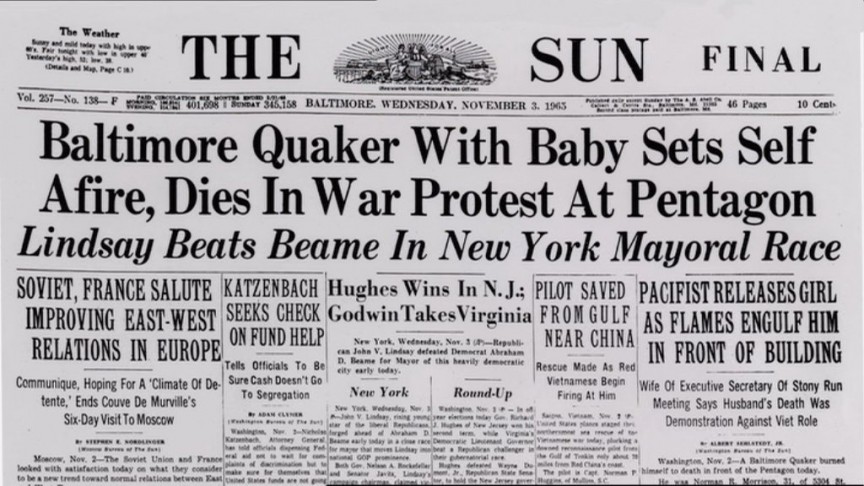
November 2, 1965: Norman R. Morrison, a Baltimore Quaker and a pacifist sacrificed himself in flames in front of the Pentagon. His widow said he gave his life “protesting our government’s deep military involvement” in Viet Nam. He had clutched his year-old daughter Emily in one arm late as he began to burn. Screams of “drop the baby” from onlookers may have saved her life, for she fell uninjured to the ground. Morrison, 31, drenched in kerosene, kindled himself as a human torch in full view of hundreds of Defense Department workers and military men. (Baltimore Sun article) (See immolations for other examples) (next Vietnam, see Nov 9)
November 2 Peace Love Art Activism
November 2 Music et al
see British Beatlemania for more
November 2, 1963: London’s Daily Mirror used the term “Beatlemania” in a news story about the group’s concert the previous night in Cheltenham. (see Nov 4)
Peter, Paul and Mary
November 2 – December 6, 1963: Peter, Paul, and Mary’s Blowin’ In the Wind is the Billboard #1 album. The best-known cover of Bob Dylan’s song. In the liner notes to Dylan’s original release, Nat Hentoff calls the song “a statement that maybe you can say to make yourself feel better… as if you were talking to yourself.” The song was written around the time that Suze Rotolo had indefinitely prolonged her stay in Italy. The melody is based on an older song, “Who’s Gonna Buy Your Chickens When I’m Gone”. The melody was taught to Dylan by folksinger Paul Clayton, who had used the melody in his song “Who’s Gonna Buy Your Ribbons When I’m Gone?” (next Dylan, see Nov 4)
Cream’s Disraeli Gears
November 2, 1967: Cream released second album, Disraeli Gears.
November 2 Peace Love Art Activism
Women’s Health
November 2, 1965: The New York Times reported that the first federally supported Women’s Health program had opened in a rural area near York, Pennsylvania.
The clinic was funded through President Lyndon Johnson’s War on Poverty, and it marked the beginning of federal aid for family planning services. Federal support became institutionalized with the 1970 Family Planning Services Act, passed by Congress on December 24, 1970 and signed into law by President Richard Nixon on December 26, 1970. (see March 1, 1966)
November 2 Peace Love Art Activism
Native Americans
November 2, 1972: more than 2,000 Indians go to Washington on the eve of the presidential election to present Nixon with their 20-point program. They occupied the Bureau of Indian Affairs (BIA) headquarters for seven days, demanding that the U.S. recognize tribal self-determination. (see February 27, 1973)
November 2 Peace Love Art Activism
Dissolution of Yugoslavia
November 2, 1991: The UN Security Council unanimously adopts a resolution opening the way to the establishment of peacekeeping operations in Yugoslavia. (see January 9, 1992)
November 2 Peace Love Art Activism
SEPARATION OF CHURCH AND STATE
November 2, 2002: an estimated 2,000 people assembled on the National Mall on this day in the first Godless March on Washington.
Participants included atheists, agnostics, humanists, and free-thinkers. Twenty people spoke at the four-hour event, which attracted some protesters. Marchers carried signs and T-shirts reading “What Our Schools Need is a Moment of Science,” and “Atheism is Myth-Understood.” (see Nov 18)
November 2 Peace Love Art Activism
LGBTQ
Amendments deny same-sex marriage
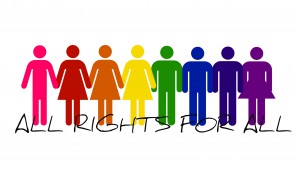
November 2, 2004: marshaled by Karl Rove, anti-gay forces in eleven states push through constitutional amendments to deny same-sex couples the freedom to marry.
In Mississippi, Montana, and Oregon the amendments restrict marriage to different-sex couples. In the other states – Arkansas, Georgia, Kentucky, Michigan, North Dakota, Oklahoma, Ohio, and Utah – the amendments deny all forms of family recognition or status, including civil union and domestic partnership. A similar amendment banning marriage was passed in Missouri in August 2004. (NYT article) (see January 19, 2005; Oklahoma, see January 14, 2014)
November 2, 2015
- federal education authorities, staking out their firmest position yet on an increasingly contentious issue, found that an Illinois school district violated anti-discrimination laws when it did not allow a transgender student who identifies as a girl and participates on a girls’ sports team to change and shower in the girls’ locker room without restrictions. Education officials said the decision was the first of its kind on the rights of transgender students, which were emerging as a new cultural battleground in public schools across the country. In previous cases, federal officials had been able to reach settlements giving access to transgender students in similar situations. But in this instance, the school district in Palatine, Ill., had not yet come to an agreement, prompting the federal government to threaten sanctions. The district, northwest of Chicago, had indicated a willingness to fight for its policy in court.
- Kim Davis, the clerk of Rowan County, asked the United States Court of Appeals for the Sixth Circuit to scrap a series of rulings issued by the district judge Judge David L. Bunning who sent her to jail for refusing to issue marriage licenses to same-sex couples. Ms. Davis’s lawyers called Bunning’s order that Ms. Davis license same-sex marriages a “rush to judgment” that trampled her religious liberty. (LGBTQ, see Nov 14; Davis, see August 18, 2016)
November 2 Peace Love Art Activism
Nuclear/Chemical News
ICAN
November 2, 2015: after mobilizing campaigners behind the Humanitarian Pledge for almost a year, the International Campaign to Abolish Nuclear Weapons [ICAN] took significant credit for bringing 127 onto the Pledge as signatories; another 23 States vote in favor of Pledge goals at General Assembly.
Also, the UN General Assembly established the Open-Ended Working Group [OEWG] to review the evidence of catastrophic humanitarian impact of nuclear weapons and to make concrete recommendations for taking forward multilateral nuclear disarmament. ICAN called on the OEWG “to begin the serious practical work of developing the elements for a treaty banning nuclear weapons.” (Nuclear, see January 6, 2016; ICAN, see see February – August 2016)
North Korea
November 2, 2018: an official with North Korea’s Foreign Ministry issued a veiled threat warning that Pyongyang could restart “building up nuclear forces” if the US did not ease the crippling sanctions levied on North Korea. [CNN report] (see Nov 12)
November 2 Peace Love Art Activism
US Labor History
November 2, 2017: Joe Ricketts, the billionaire founder of TD Ameritrade who owned the DNAinfo and Gothamist, shut them down.
A post by Mr. Ricketts went up on the sites announcing the decision. He praised them for reporting “tens of thousands of stories that have informed, impacted and inspired millions of people.” But he added, “DNAinfo is, at the end of the day, a business, and businesses need to be economically successful if they are to endure.”
All other articles promptly vanished from the sites; an official at DNAinfo said they would be archived online.
The decision put 115 people out of work, both at the New York operations that unionized and at those in Chicago, Los Angeles, San Francisco and Washington that did not. They are getting three months of paid “administrative leave” at full salary, plus four weeks of severance, DNAinfo said. [NYT article] (see Nov 14)
Nuclear/Chemical News
November 2, 2018: an official with North Korea’s Foreign Ministry issued a veiled threat warning that Pyongyang could restart “building up nuclear forces” if the US did not ease the crippling sanctions levied on North Korea. [CNN article] (see Nov 12)
Immigration History
Trump’s Wall
November 2, 2019: according to the Washington Post, smugglers were using a commercial saw to cut through newly built sections of the president’s wall— which is made of steel bollards that are partially filled with concrete.
The tool can cut through the wall’s steel and concrete in minutes when fitted with the appropriate blades, Customs and Border Protection (CBP) agents have said. After cutting the steel bollards, smugglers have taken to returning them to their original positions in hope of reusing the passage without being detected by border officials.
Agents mended the breach, however, repaired sections are still targeted by smugglers, as it was easier to cut through the welded metal than to make new cuts. And the repair policy had also been targeted by smugglers who attempt to fool agents into believing a severed bollard has been fixed by applying putty to the site of the cut. [VOX story] (see Trump’s Wall for expanded chronology)
Health Insurance
November 2, 2019: U.S. District Judge Michael Simon Portland, Oregon put on hold a Trump administration rule requiring immigrants prove they would have health insurance or could pay for medical care before they could get visas.
Simon granted a temporary restraining order that prevented the rule from going into effect November 3. (next IH, see Nov 6)
Environmental Issues
November 2, 2021: more than 100 countries vowed to end deforestation by 2030.
President Biden said the United States would contribute billions to the global effort to protect the ecosystems that are vital for cleaning the air we breathe and the water we drink, and keeping the Earth’s climate in balance.
The pact — which also includes countries such as Brazil, Russia and China — encompasses about 85 percent of the world’s forests, officials said. It is one of the first major accords to emerge from the United Nations climate summit known as COP26, which is seen as a crucial moment in efforts to address climate change.
“These great teeming ecosystems — these cathedrals of nature,” Prime Minister Boris Johnson of Britain said in announcing the agreement, “are the lungs of our planet.” [NYT article] (next EI, see Nov 13)
November 2 Peace Love Art Activism
LSD
November 2, 2021: Detroit voters decriminalized therapeutic mushrooms – also known as psychedelic or “magic” mushrooms. Voters were asked to vote on Proposal E, which would make “the personal possession and therapeutic use of entheogenic plants by adults the city’s lowest law-enforcement priority.”
The measure passed with 61.08% of the vote.
Although scientists are still doing research, Psilocybin can be used to treat a variety of psychological issues, including depression, .
Last year, voters in another Michigan city, Ann Arbor, also voted to decriminalize psychedelic plants, as did voters in Washington, D.C. and voters in Denver in 2019. [CBS News article] (next LSD, see August 24, 2022)

